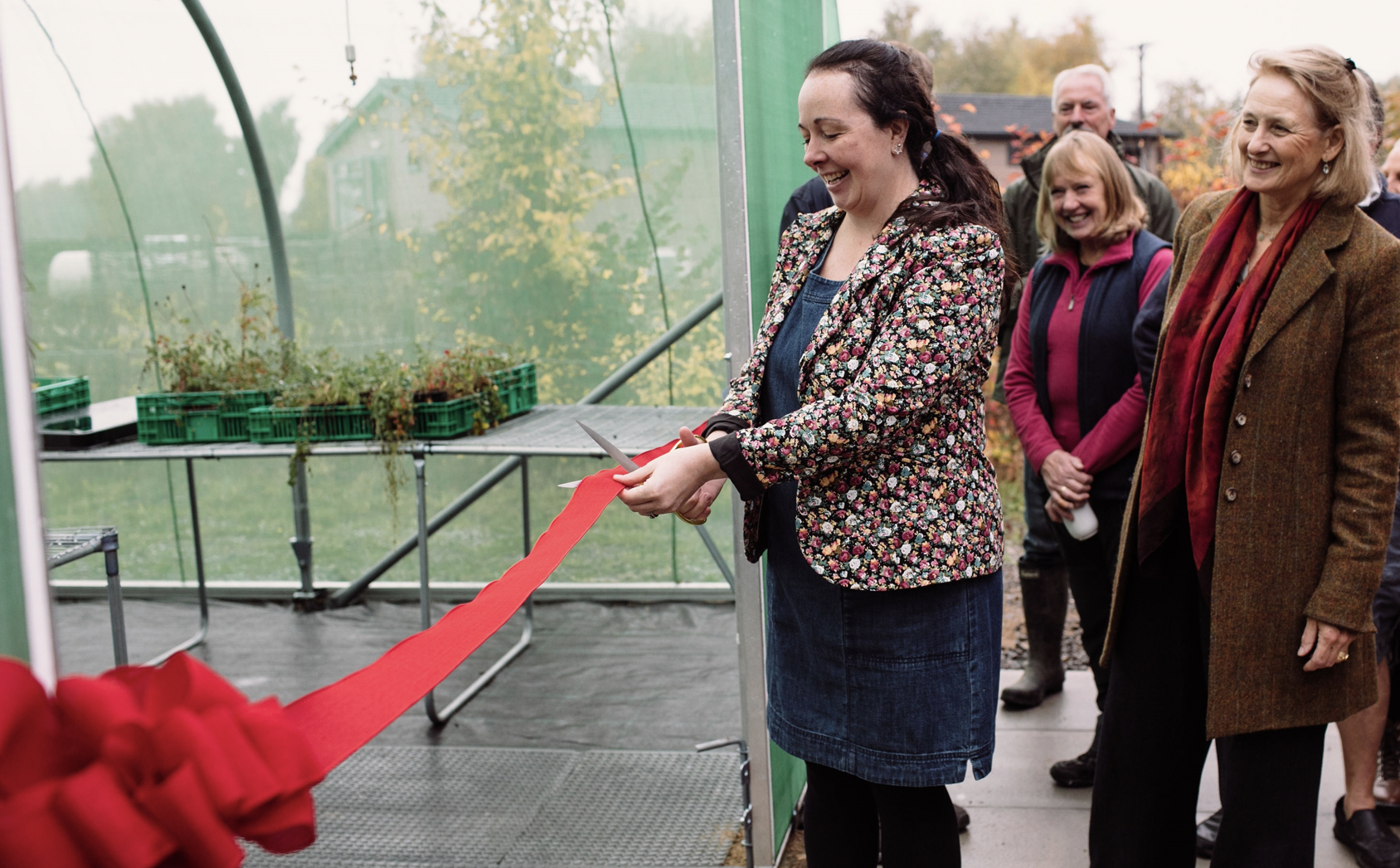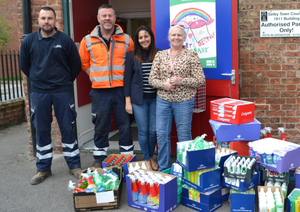A game-changing state-of-the-art polytunnel has been officially unveiled at the Three Hagges Woodmeadow between York and Selby.
Sarah Mason of Yorkshire Water, who are the principal funders of the polytunnel, cut the ribbon at a special opening ceremony.
Sarah said: “Yorkshire Water is absolutely delighted to be helping to fund this pioneering project. It is vitally important we support pioneering initiatives like this, which help to enhance and sustain a wonderful woodmeadow.
“I know Three Hagges Woodmeadow well on a personal level as well as a professional one, so I am very proud and honoured to be cutting the ribbon to unveil this splendid polytunnel.
“I strongly believe this woodmeadow is a shining example of how to create a natural environment in which nature can flourish. The fact that the woodmeadow has a thriving educational role too underlines its importance.”
Rosalind Forbes Adam founder of Three Hagges Woodmeadow and trustee of Woodmeadow Trust, the charity that runs it, explained that the new polytunnel was a key element in the Yorkshire Flora Recovery Project, which will establish a gold standard framework to enhance woodmeadow sites through species-rich ground flora, which are a vital part of the eco-system for pollinators and bio-diversity.
Rosalind commented: “We are very grateful indeed to Yorkshire Water together with Lord Barnby’s Foundation and Mrs John Guthrie for their generous support. This has enabled this very special project to get off the ground. The polytunnel is a game-changer for our woodmeadow, an invaluable addition to our native plant nursery.
“Thanks to this support, we have also been able to recruit a Trainee Ecologist, Freya Davies. We now have the resources for volunteers to make Three Hagges Woodmeadow even more species-rich and the wonderful opportunity to train others to enhance their woodmeadow sites.
“We can use our new bespoke polytunnel to provide specialist flora workshops for wildflower propagation and seed collecting. Despite woodland cover more than doubling, many historically widespread woodland specialist plants, as well as butterfly species which depend upon specific foodplants, have suffered dramatic declines over the past century.”
Dan Carne, director of the UK Woodmeadow Network, commented: “It is amazing to be in a position to initiate a step-change in approach to the establishment of a diverse ground flora in new woodland and woodmeadow. Many people can now learn about this exciting avenue of sustainable engagement with the natural world, learn new skills, delight in the colourful enhancement of ecosystems and contribute to nature recovery and biodiversity in Yorkshire and the UK.
“It is so important to stress that creating a woodmeadow is about more than just planting trees. In addition, we focus on creating complex patchworks of wildflower meadow and woodland, nurturing species-rich ground flora from the outset.
“The Yorkshire Flora Recovery project is a key component of our larger work building a Woodmeadow Network. Our key aim is to inspire 50 new woodmeadows across the UK by 2025 and ultimately to make space for species-rich sustainable ecosystems where people and nature can grow. It is our aim that these spaces provide educational opportunities, offer citizen science recording and monitoring surveys, and are open to the public allowing communities the opportunity to connect with nature.”
Rosalind explained that Three Hagges Woodmeadow’s old plant nursery was designed and built over six years ago with a grant from Bettys. However, due to the woodmeadow’s recent growth and current and future requirements, the nursery needed to be replaced and refitted. The new bespoke polytunnel, created by Lancashire-based Northern Polytunnels, covers a similar floor space to the old nursery beds. However, it is much higher at three metres instead of one metre and is robustly made.”
She added: “The height of the new polytunnel has made a huge difference as volunteers and trainees can now walk upright throughout. The new polytunnel has a shade-netted section where plants are housed and a poly-covered section which now means volunteers and trainees can stay warm and dry in all-weather conditions.
“Our new polytunnel will also allow us to increase our productivity in propagating and caring for wildflowers. Plants may spend up to two years in our plant nursery and our team of volunteers record provenance and manage all stages of plant growth: sowing seeds, potting on, separating plants and on-going care. In essence they prepare them ready to be planted out at the correct time in their growth cycle.”






